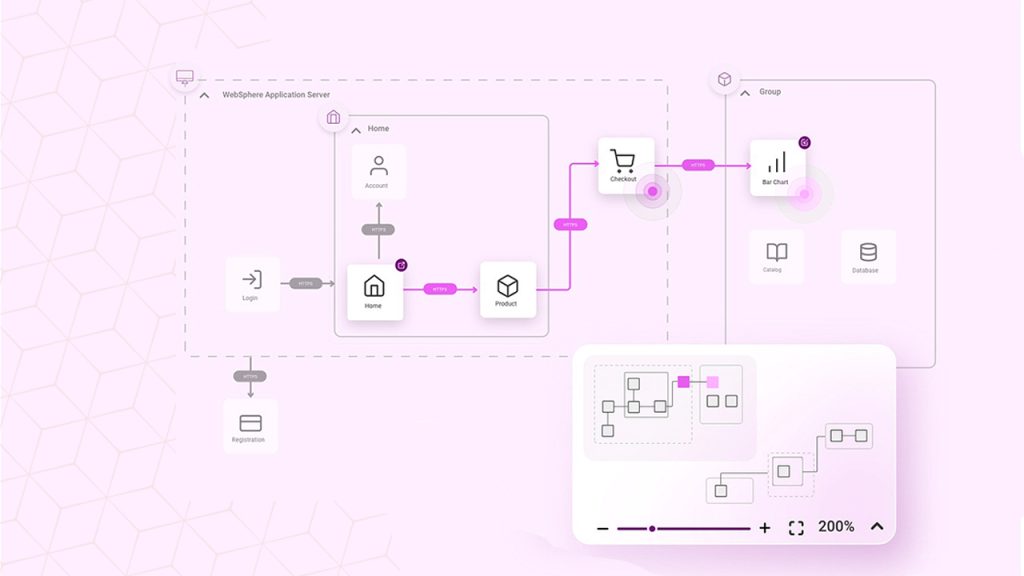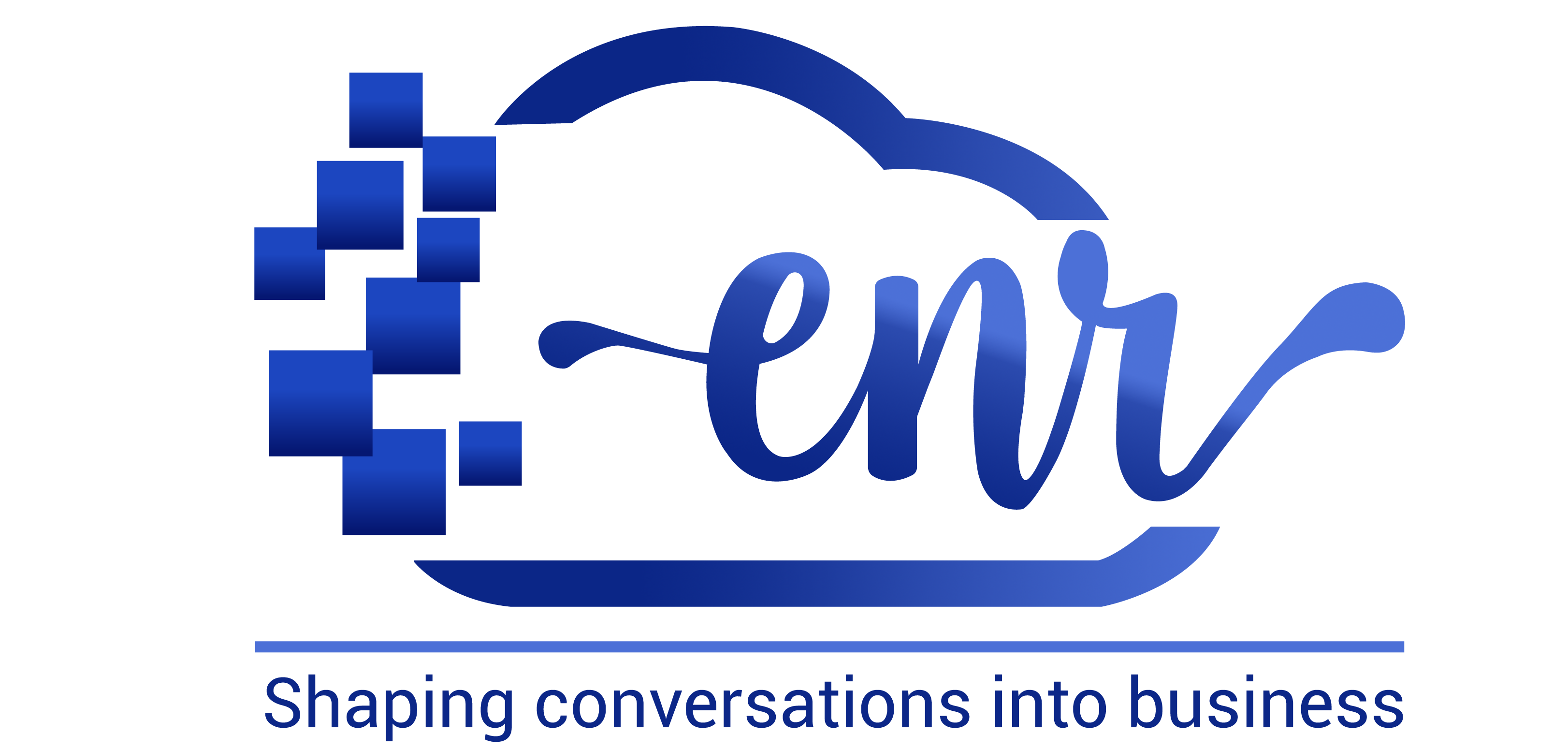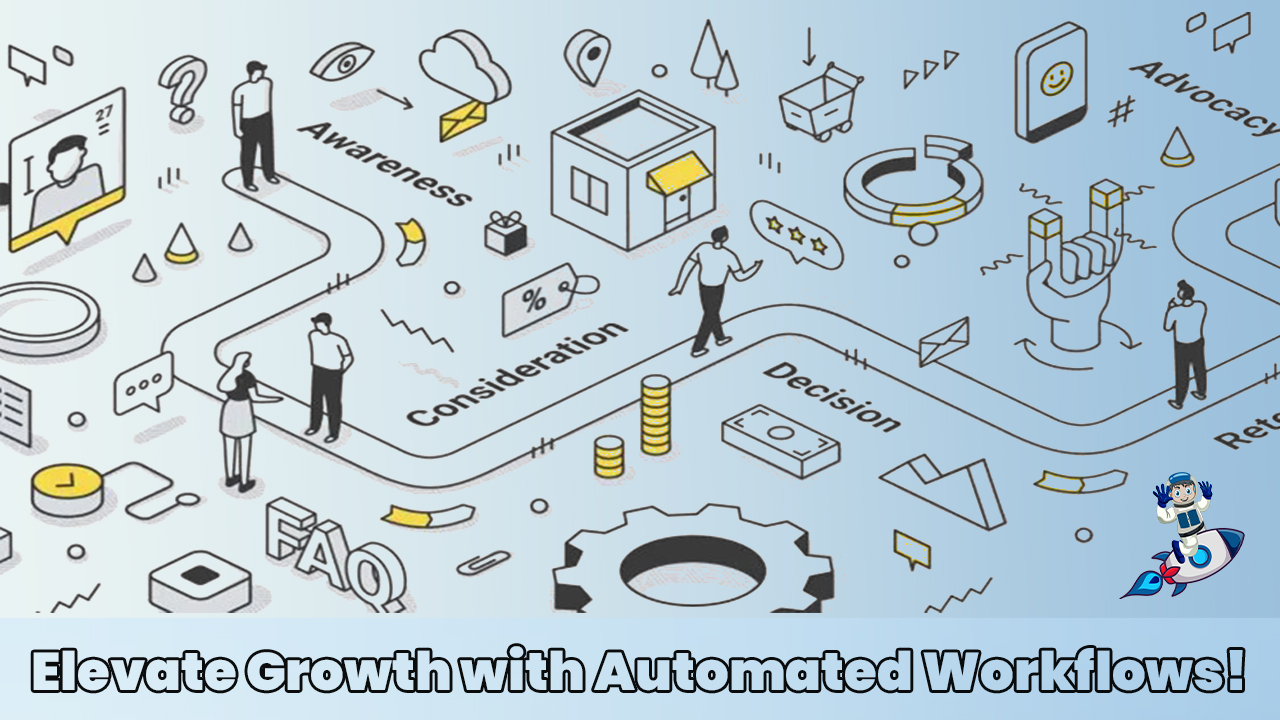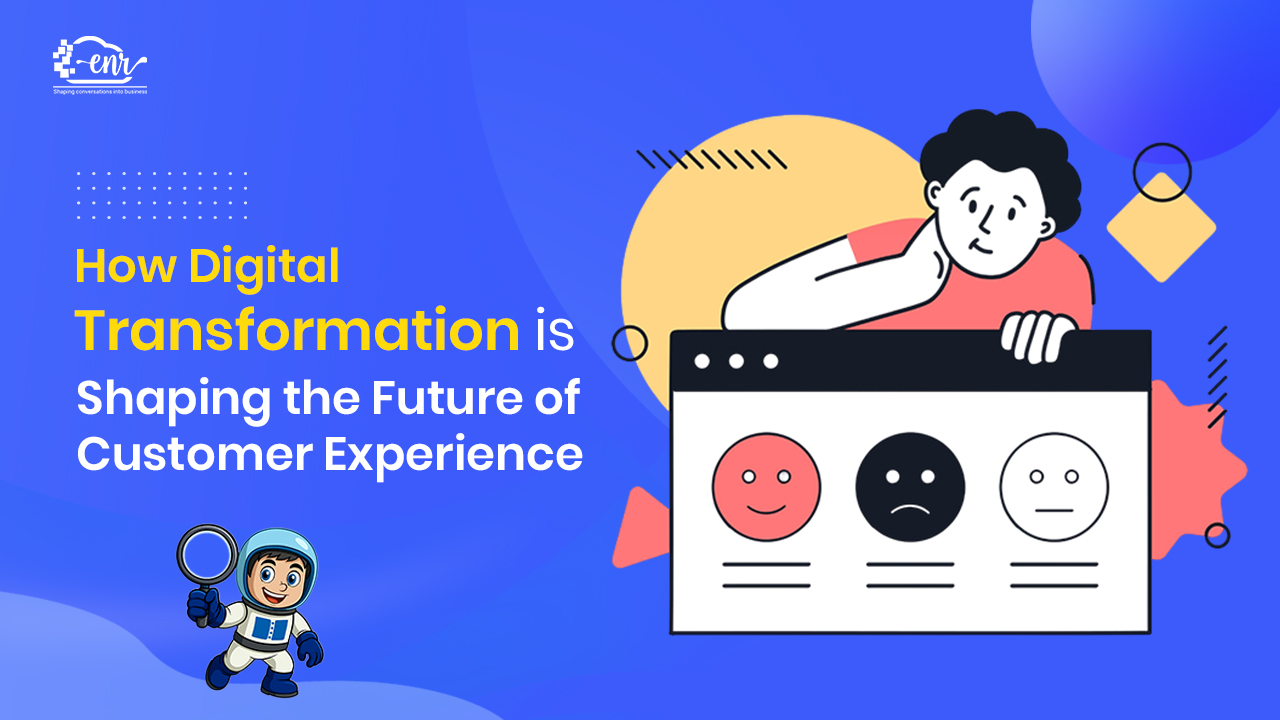Workflow automation is a self-propelling program that works on rule-based logic to launch a series of actions without any manual steps.
After you set up the rules for when to do and what to do logic, automated workflows can send emails, notification alerts, data upgrades, and modifications, personalization, initiate drip campaigns on triggers, and much more.
This can be achieved by generating a workflow engine, which requires a one-time setup with minimal human interference. Let’s study more about it.
Table of Contents
ToggleDifference b/w Business Workflow Automation and Robotic Process Automation
The primary difference between these two terms is in their goal achievement.
Business workflow automation achieves overall customer satisfaction through a streamlined process based on accuracy, punctuality, contextual understanding, and micro transparency.
Whereas Robotic process automation works on automating a single task process with a running hardcode(bot) behind it.
In a sense, its area of effectiveness is limited to repeating a step whenever the robot code gets called.
Where do we see the Applications of Workflow Automation in the world
There are a host of business use cases, where we can see the advent of automation technology coming into existence. Workflow automation engine is applied across various industries to streamline business processes, improve campaign efficiency, and enhance overall productivity.
The following use cases can be illustrated with our relevant industries for the time being:
1- New Employee Engagement & Onboarding
When a new joint connects to the company structure, it becomes important for the company to make them aware about the company requirements and policies. This initiates the need for automated sending of joining kit, document submission, feedback management system to come into existence. A workflow engine solves this process quite efficiently.
2- Automated Billers
The client-vendor relationship is based on trust and transparency. An automated workflow can help connect the right data inputs with the right consumption account. This involves sending scheduled & automated delivery of correct bill attachments to the correct consumer. A workflow engine makes this possible.
3- Lead Generation, Scoring & Nurturing
A business entity depends heavily on its sales pipeline to get the desired fuel for their growth. An automated workflow can make this process quite streamlined.
For example, A lead gets generated and is immediately submitted to the sales team for further activity. An automated scoring mechanism can help the sales team prioritise the lead meetings and save on crucial time.
Nurturing process, which can be an automated series of followup and educating communications by understanding lead response behaviour, will help them with conversions from the low hanging fruits.
4- Content Management & Publishing
Workflow automation can make publishing content a real pleasant experience. It can relay the content approvals, dynamic allocation to content creators, and manage the posting across various channels. This leads to a disciplined content strategy.
5- Healthcare Management System
This is one of the key areas, where automation has made life of patients and doctors very easy, at least for getting them connected. Appointment management, report collection alerts, document submission for insurance, automated billing, feedback management, and all other related tasks can make the patient journey hassle-free.
6- Customer Support and Service
An integral and mandatory section of any business is its customer support and service. Here the Automation Workflow engine can make things streamlined with a ticket management system.
Assignments of the ticket, autoresponders, track updates, IVR management, service call scheduling, etc can make the experience of a customer hamper-free.
7- Digital Marketing and Allied Activities
Acquisition, Engagement and Retention of customers in today’s time is heavily dependent on brands’ Digital marketing approach. To make this possible, a workflow engine can help design and schedule trigger-based notifications via App, Website, Email, SMS, WhatsApp and all other relevant channels.
It can work on filter criteria and decide which message needs to be sent to which category of customer, with a touch of personalization.
Let’s Explore Our Marketing Automation Services
Configuration and Working of a Business Automation Workflow Engine
Generally, Workflow Engines need a technology platform base to commence and conclude the business process.
There are some essential components required in creating and executing a business process workflow.
Let’s see those below:

1- Workflow Designing and Mapping
The first and foremost step is to design the workflow blueprint. It gives an idea about the steps and actions required to complete the business process.
Creating a map of activities makes it easy to identify the order of activities, time length, scope for improvisations, etc.
2. Automation Build-Up & Configuration
After designing the Workflow structure, all you need is a tool or a platform, where you can actually realize the same design. The major components of workflow builders are triggers, actions, conditional filters, and control flow mechanisms.
We generally have a drag-drop or drop-down selector-based user interface to carry out the configuration.
This also involves integrations with external interfaces and systems, like CRM/ERP/CDP. The data coming through these resources can be consumed in the workflows to make a better and effective decision call.
3- Task Initiation On Trigger Or Manual Input
A task can be initiated either through a defined event (For eg: Customer initiated registration on website) in the start of flow, or it can be initiated on manual input (Eg: Selecting a data list).
In any one of the cases, eventually, the system gets a nod to initiate the action like sending email, alert, document share, data update, etc.
4. Task Execution
The workflow, as it starts fulfilling every step of action, also keeps the conditional filter criteria into consideration.
This enables it to take the action step for specific criteria and proceed accordingly. Once it completes a step, it moves to the next step as per the output of the previous step.
5. Workflow Performance Report & Monitoring
It is very important to read and analyze the workflow results, to eradicate any shortcomings and make it more optimized.
The flow of activities can be checked through node-wise reports, which helps the administrator to recognize whether the exact goal of the whole process is being met or not.
Pros and Cons of Workflow Systems
Pros:
- Makes the overall running of the business process more streamlined and efficient.
- Minimizes the chances of errors and mistakes, which can be a possibility during manual efforts.
- Transparency & visibility is one of the key benefits that a company can derive from applying workflow automation.
- It gives the system more space and scope for expansion, with less resource allocation. Rather than spending endless hours for a process to complete every day, you can just spend a day designing the logic and running it for quite a long time.
- It saves you costs and saves you time when it comes to managing heavy projects with huge stakes.
Cons:
- It can be cost-heavy for certain projects, where the output impact does not match with the input effort and cost.
- Making it live and running may be time-consuming, as there are multiple dependent factors like external integrations, approvals, data security, etc.
- There could be resistance to adoption from company staff, as the fear of automation removing their job can be a detrimental aspect.
Conclusion
In conclusion, the company that effectively manages to deploy workflow automation engines to their advantage will make the cut in the long run.
However, they need to be aware of the right selection of tools and strategies to implement the same.
Also Read- Know All About Customer Experience Automation in 2024
Amit Bhateja is the co-founder of enrcloud and helping brands and Unicorns from the last 15+ years and overachieve their Engagement and Retention goals. He is passionate about solving customer problems with modern technology, new age solutions, and consultancy approach. Besides Building ENR, He enjoys reading books, spending time with his family and Teammates, traveling, meeting new people, learning new things, and love to close the business deals.





